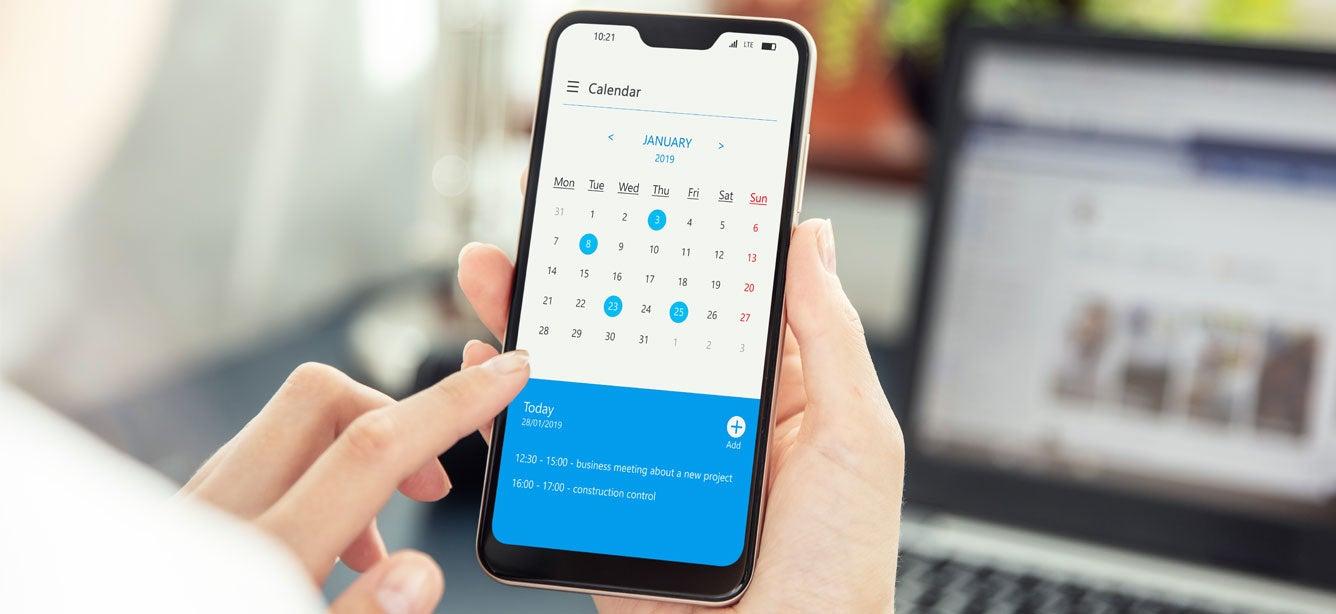
As a professional who works with Medicare beneficiaries, you likely already know that Medicare coverage denials are a frequent occurrence. What is the denial rate for Medicare? One 2022 study discovered $416 million in denied spending in Medicare Advantage claims, with $60 of denied spending per beneficiary yearly.1 According to KFF, more than 2 million prior authorization requests were fully or partially denied by Medicare Advantage insurers in 2021. Only 11% of denials were appealed by enrollees.2
The good news is when a beneficiary disagrees with a coverage or payment decision by Medicare, they have the right to file an appeal. This can take place when the person:
- Disagrees with a denial of coverage of a health care service, supply, item, or drug
- Requests payment for a service or item they already received, and is denied
- Wants to contest a change to the amount they must pay for a specific service or item
KFF’s research showed the vast majority (82%) of appeals were successful, resulting in Medicare fully or partially overturning the initial prior authorization denial.2
Given their high success rate, pursuing a Medicare coverage denial appeal is worth the time and effort for your clients. Explore our comprehensive guide to learn how you can help older adults appeal a decision related to their Medicare coverage and payments in original Medicare, Medicare Advantage (Part C), and Medicare Part D.
What are common reasons for a Medicare coverage denial?
There are a number of reasons Medicare might deny coverage. Some common reasons include:
- Medicare deems the service or item not medically necessary.
- The beneficiary visited a provider outside of their plan’s network (only applies to Medicare Advantage plans).
- The beneficiary has exceeded the maximum allowed covered days in a hospital or care facility.
- The Part D plan's formulary does not include the beneficiary’s prescription medication.
- A specific health care service, supply, or item is no longer covered by a person’s Medicare plan.
What is an appeal? How does a Medicare appeal work?
An appeal is a formal request for a review of a decision made by original Medicare or a Medicare Advantage or Part D plan. There is more than one level of appeal, and the beneficiary has the right to persist if they are not successful at the first level. There is a separate timeframe at each level for when a person must file the appeal and when they will receive a decision—so beneficiaries must make sure to file each appeal in a timely manner. In the appeal, they should address the reason(s) for denial stated by Medicare or their Medicare Advantage plan.
How does a beneficiary know if they are being denied a service?
A beneficiary can see on their claims summary notices if a service was covered or not:
- People with original Medicare should receive a Medicare Summary Notice (MSN) mailed quarterly. If no services were received during a particular quarter, the beneficiary will not receive an MSN.
- People with Medicare Advantage plans should receive an Explanation of Benefits (EOB), unless they did not receive medical services or items in that timeframe. EOBs are usually mailed out once per month, or per service.
MSNs and EOBs are not bills. Instead, each is a summary of the services and items the beneficiary received and how much they may owe for them. These notices explain how much the medical provider billed, the amount original Medicare (if an MSN) or the Medicare Advantage plan (if an EOB) will pay, and how much the beneficiary owes the provider.
If a beneficiary is denied a service or item, it should be listed on the MSN or EOB, along with a reason for denial. These notices should also include instructions for the next level of appeal, such as timeframes and mailing addresses. If a notice says Medicare or a Medicare Advantage plan did not pay for a service, and the beneficiary thinks it should, they should call their doctor to make sure there was not a billing error before appealing. If it turns out there was a billing error, the doctor should re-submit the claim to Medicare or the Medicare Advantage plan. A beneficiary should not use the appeal process to address billing errors.
If a person with original Medicare has received health care services but has not received an MSN, they should call 1-800-MEDICARE (1-800-633-4227) or log into their secure account at MyMedicare.gov. If someone with a Medicare Advantage plan has received health care services but has not received an EOB, they should contact their plan directly at the customer service number listed on the back of their plan card.
What should a person do if they do not understand why they are being denied a service?
There are various resources for those who are confused about coverage rules and why their service is being denied. It is important the person making an appeal has a strong understanding of the reason(s) for denial and the coverage rules around the denial. Remember that the appeal should address these denial reason(s) and coverage rules. Beneficiaries should first read their Medicare notices to learn about the reason for their denial. If the reason for denial is still unclear or confusing, they can:
- Contact Medicare: If the beneficiary has original Medicare, they can call 1-800-MEDICARE to learn more about the reason behind their denial. Since Medicare Advantage plans must offer, at minimum, the same benefits as original Medicare (but with different rules, costs, and coverage restrictions), even those with Medicare Advantage plans can contact 1-800-MEDICARE to learn more about original Medicare coverage.
- Contact the Medicare Advantage plan: If the beneficiary has a Medicare Advantage plan, they can call their plan directly to get more information on the denied claim. They can also request the plan mail them the coverage rules that apply to their claim. Remember that Medicare Advantage plans must offer, at minimum, the same benefits as original Medicare, but can do so with different rules, costs, and coverage restrictions.
- Contact their State Health Insurance Assistance Program (SHIP): Each state offers a SHIP to give Medicare beneficiaries free counseling and assistance. A SHIP can help beneficiaries understand their Medicare notices, navigate their coverage, and appeal coverage denials. People can find their local SHIP by visiting the website or calling 877-839-2675.
Can a person file an appeal late?
When initially filing an appeal and for each subsequent level, a beneficiary has a limited amount of time to file. That said, after the deadline has passed, if someone can show good cause for not filing on time, their late appeal may be considered. A good-cause extension can be requested at any level of appeal, and it is available for original Medicare, Medicare Advantage, and Part D appeals. A person can request a good-cause extension just by sending in their appeal as they normally would and including a clear explanation of why the appeal is late. If the reason has to do with illness or other medical conditions, a letter or supporting documentation from their health care provider can be helpful.
Extension requests are considered on a case-by-case basis, so there is no complete list of valid reasons for filing a late appeal. However, some examples include:
- The notice being appealed was sent to the wrong address.
- A Medicare representative gave the person incorrect information about the claim being appealed.
- Illness (either the beneficiary appealing or a close family member’s) prevented the person from handling the matter.
- The beneficiary has problems reading, does not speak English, or could not otherwise understand the coverage notice.
Can someone file an appeal on the beneficiary’s behalf?
Yes. A beneficiary can appoint a trusted representative to appeal a denial on their behalf. The representative can be anyone willing to act on their behalf, such as a lawyer, doctor, social worker, family member, or friend. To appoint a representative, the Appointment of Representative form must be completed and mailed to either the Medicare Administrative Contractor (MAC, see question 6) or the Medicare Advantage plan. Alternatively, rather than complete the Appointment of Representative form, a person can submit a written request with the appeal. This written request should include:
- The beneficiary’s name, address, phone number, and Medicare number
- A statement from the beneficiary appointing someone as their representative
- The name, address, and phone number of the representative
- The relationship between the representative and beneficiary
- A statement authorizing the release of the beneficiary’s personal and health information to the representative
- A statement explaining why the beneficiary is being represented and to what extent
How can a person appeal a denial from original Medicare?
If a health service or item was denied, a beneficiary can follow these steps to appeal the denial. Note that these steps are for a standard appeal, which one files if they have already received the service, but Medicare is denying payment.
A beneficiary should file an expedited appeal if they disagree with a hospital’s or skilled nursing facility’s plans to discharge them, or if they disagree with a home health agency’s or hospice’s plans to end their care. For all kinds of appeals, people should keep copies of all documents they send and receive during the process.
1. Start the appeal by following the appeal instructions listed on the MSN. This includes circling the denied service listed and filling out the shaded section at the end of the MSN. Then, send the appeal to the MAC within 120 days of the date on the MSN. (The MAC’s name and address are listed in the shaded section of the MSN.) This will start the appeal. The MAC should make a decision within 60 days. Things to note:
- If the beneficiary’s provider sends them a bill for this service, they should let their provider’s billing office know they are in the process of appealing Medicare’s coverage decision.
- If the beneficiary has a good reason for missing their appeal deadline, they may be eligible for a good-cause extension.
2. If the appeal is successful, the service or item will be covered. If the appeal is denied, the beneficiary can move on to the next level by appealing to the Qualified Independent Contractor (QIC) within 180 days of the date listed on the MAC denial letter. The QIC may go by a different name in the beneficiary’s area. Follow the instructions on the MAC denial notice to file the appeal. The QIC should make a decision within 60 days.
3. If the QIC appeal is successful, the service or item will be covered. If the appeal is denied and the health service or item is worth at least $180 in 2024, a person can choose to appeal to the Office of Medicare Hearings and Appeals (OMHA) level. The OMHA level appeal must be filed within 60 days of the date on the QIC denial letter. If the person decides to appeal to the OMHA level, they may want to contact a lawyer or legal services organization to help with this or later steps in the appeal—but this is not required. OMHA should make a decision within 90 days.
4. If the appeal to the OMHA level is successful, the service or item will be covered. If the appeal is denied and the health service or item is worth at least $180 in 2024, the beneficiary can choose to appeal to the Council within 60 days of the date on the OMHA level denial letter.
5. The beneficiary may not receive an OMHA level decision within 90 days. If the appeal has spent more than 90 days at the OMHA level, a person can ask OMHA to move the appeal on to the next level (the Council). If the appeal to the Council is successful, the service or item will be covered. If the appeal is denied and the health service or item is worth at least $1,840 in 2024, a person can choose to appeal to the Federal District Court within 60 days of the date on the Council denial letter. There is no timeframe for the Federal District Court to make a decision.
How can someone appeal a pre-service denial from a Medicare Advantage plan?
If a person was denied coverage for a health service or item before they received the service or item, they can appeal to ask their Medicare Advantage plan to reconsider its decision.
Note there are different appeal processes if the plan has denied coverage for care already received (see next question) or a prescription drug.
1. Before starting an appeal, the beneficiary will need to get an official written decision from their plan, called a Notice of Denial of Medical Coverage. They are typically first told verbally that their plan will not cover a service or item when they or their doctor call to confirm coverage before the service is provided. If the plan tells them the service or item will not be covered, the plan should also send a Notice of Denial of Medical Coverage. The beneficiary should receive this written denial within 14 days.
A fast (expedited) appeal can be requested if the beneficiary or their doctor feels their health could be seriously harmed by waiting the standard timeline for appeal decisions. If the plan approves the request to expedite, it should issue a decision within 72 hours. For this and the following levels of appeal, the beneficiary’s doctor can ask that the plan follow the expedited timeline.
2. Start the appeal by following the instructions on the notice received from the plan. Make sure to file the appeal within 60 days of the date on this notice. A letter will most likely need to be sent to the plan explaining why the service or item is needed. It may also be helpful for the beneficiary’s doctor to write a letter of support, explaining why this care is needed and addressing the plan’s reason for denial. The plan should make a decision within 30 days. If the appeal is expedited, the plan should make a decision within 72 hours.
- In some cases, the plan can extend its decision deadline up to 14 days. They should notify the beneficiary if this happens.
- If the beneficiary does not receive a Notice of Denial of Medical Coverage within two weeks (or 28 days if the plan extended its decision deadline), an appeal can be filed without it. Start the appeal by sending a letter to the plan explaining that it has been two weeks since the initial request for an item or service, and a denial notice has not been received. If possible, include a doctor’s letter of support. The beneficiary may also want to file a grievance, or formal complaint, with the plan.
- If the beneficiary has a good reason for missing the appeal deadline, they may be eligible for a good-cause extension.
3. If the appeal is successful, the service or item will be covered. If the appeal is denied, a written denial notice should be sent to the beneficiary. The plan should also automatically forward the appeal to the next level, the Independent Review Entity (IRE). The IRE should make a decision within 30 days of the date on the plan denial notice. If the appeal is expedited, the IRE should make a decision within 72 hours.
If the plan misses the 30-day decision deadline, the appeal will be considered denied, and the plan should automatically forward the appeal to the IRE.
4. If the appeal to the IRE is successful, the service or item will be covered. If the IRE appeal is denied and the service or item is worth at least $180 in 2024, the beneficiary can choose to appeal to the Office of Medicare Hearings and Appeals (OMHA) level. The OMHA level appeal must be filed within 60 days of the date on the IRE denial letter. There is no timeframe for the OMHA to make a decision. If a person decides to appeal to the OMHA level, they may want to contact a lawyer or legal services organization to help with this or later steps in the appeal—but this is not required.
5. If the appeal to the OMHA level is successful, the service or item will be covered. If the appeal is denied and the service or item is worth at least $180 in 2024, the beneficiary can appeal to the Council within 60 days of the date on the OMHA level denial letter. There is no decision timeframe for the Council to make a decision about the appeal.
6. If the appeal to the Council is successful, the service or item will be covered. If the appeal is denied and the service or item is worth at least $1,840 in 2024, a person can appeal to the Federal District Court within 60 days of the date on the Council denial letter. There is no timeframe for the Federal District Court to make a decision about the appeal.
How can a person appeal a post-service denial from a Medicare Advantage plan?
If a person was denied coverage for a health service or item that was already received, they may choose to appeal to ask their plan to reconsider its decision. Note there are different appeal processes if the plan has denied coverage for care not yet received (see previous question) or a prescription drug.
1. The beneficiary should receive a written notice from the plan stating that it is not covering a health service or item. This can either be an EOB or a notice titled Notice of Denial of Medical Coverage. The notice should explain how to appeal and the reason the care is not being covered.
Remember, an EOB is not a bill. If an EOB states that a service was not paid for by the plan, call the plan to ask why. It may be a billing or coding error. If it is a denial, the beneficiary should begin the appeal.
2. Start the appeal by following the instructions on the notice received from the plan. Make sure to file the appeal within 60 days of the date on the notice. A letter will most likely need to be sent to the plan explaining why the service was needed. It may also be helpful for the beneficiary’s doctor to write a letter of support, explaining why this care was needed and addressing the plan’s reason for denial. The plan should make a decision within 60 days.
If the beneficiary has a good reason for missing the appeal deadline, they may be eligible for a good-cause extension.
3. If the appeal is successful, the service or item will be covered. If the appeal is denied, the beneficiary should receive a written denial notice. The plan should automatically forward the appeal to the next level, the Independent Review Entity (IRE). The IRE should make a decision within 60 days of the date on the plan denial notice.
If the plan misses the 60-day decision deadline, the appeal will be considered denied, and the plan should automatically forward the appeal to the IRE.
4. If the appeal to the IRE is successful, the service or item will be covered. If the IRE appeal is denied and the care is worth at least $180 in 2024, a person can choose to appeal to the Office of Medicare Hearings and Appeals (OMHA) level. The OMHA level appeal must be filed within 60 days of the date on the IRE denial letter. There is no timeframe for the OMHA to make a decision. If the person decides to appeal to the OMHA level, they may want to contact a lawyer or legal services organization to help with this or later steps in their appeal— but this is not required.
5. If the appeal to the OMHA level is successful, the service or item will be covered. If the appeal is denied and the health service or item is worth at least $180 in 2024, one can appeal to the Council within 60 days of the date on the OMHA level denial letter. There is no decision timeframe for the Council to make a decision.
6. If the appeal to the Council is successful, the care will be covered. If the appeal is denied and the health service or item is worth least $1,840 in 2024, a person can appeal to the Federal District Court within 60 days of the date on the Council denial letter. There is no timeframe for the Federal District Court to make a decision.
How can a person appeal a denial from Medicare Part D?
When an older adult goes to pick up a prescription drug from a pharmacy, they may be told their Part D drug plan has denied coverage. Like with original Medicare and Medicare Advantage, beneficiaries have the right to appeal this decision. See our complete guide to appealing a Part D drug coverage denial.
What is the best way to win a Medicare appeal?
Here are some general tips that can help beneficiaries build a strong appeal and increase their odds of a favorable decision:
- Make sure all notices from Medicare or the Medicare Advantage plan are fully read and understood.
- Include a letter from the beneficiary’s doctor in support of the appeal.
- Make sure to meet appeal deadlines. If there is a reason the appeal cannot be submitted within the timeframe, request a good-cause extension.
- Keep a copy of all documents sent and received during the process.
- If possible, send the appeal with certified mail or delivery confirmation.
- Do not send the original copies of important documents.
- The beneficiary should keep any relevant notices received and write down the names of any representatives they spoke with, the date and time of the conversation, and what they discussed.
Can a person still appeal if they signed an Advance Beneficiary Notice?
A beneficiary can still appeal if they signed an Advance Beneficiary Notice (ABN). An ABN, also known as a waiver of liability, is a notice a provider can give patients before a service is given if, based on Medicare coverage rules, the provider has reason to believe Medicare will not pay for the service. A beneficiary may receive an ABN if they have original Medicare, but they will not receive an ABN if they have a Medicare Advantage plan.
Providers are not required to provide ABNs for services or items routinely not covered by Medicare (e.g., when a beneficiary is nearing the end of a Medicare-covered skilled nursing facility stay).
While the ABN serves as a warning that Medicare may not pay for the care the provider recommends, it is possible Medicare will pay for the service. To get an official decision from Medicare, the beneficiary must first sign the ABN, agreeing to pay if Medicare does not, and receive the care. If coverage is denied after the ABN is signed and the care is received, the beneficiary may appeal.
What if a plan is not following the guidelines for responding to an appeal?
If a plan is not following the guidelines for responding to an appeal (for example, the plan is taking too long to make a decision about an appeal), a person can file a grievance. A grievance is a formal complaint filed with and about the plan.
To file a grievance, the beneficiary should send a letter to the plan’s Grievance and Appeals department (the address for which can be found on the plan’s website or by calling the plan by phone). A person can file a grievance with the plan over the phone, but to retain proof of the grievance, it can be submitted in writing. A grievance can also be submitted via 1-800-MEDICARE or online.
Be sure the grievance is sent within 60 days of the event that led to the grievance. The plan must investigate the grievance and get back to the beneficiary within 30 days (24 hours if urgent). If the person has not heard back from their plan within this time, they can check the status of the grievance by calling the plan or 1-800-MEDICARE.
Visit our Medicare for Professionals resource library for more insights to help your clients understand Medicare enrollment, costs, and coverage.
Sources
1. Aaron L. Schwartz, et al. Coverage Denials: Government and Private Insurer Policies for Medical Necessity in Medicare. Health Affairs. Sept. 12, 2022. Found on the internet at https://www.ncbi.nlm.nih.gov/pmc/articles/PMC9465897/
2. KFF. Over 35 Million Prior Authorization Requests Were Submitted to Medicare Advantage Plans in 2021. Feb. 2, 2023. Found on the internet at https://www.kff.org/medicare/issue-brief/over-35-million-prior-authorization-requests-were-submitted-to-medicare-advantage-plans-in-2021/




